The discovery of a ubiquitous protein and its role in many of the most important of life processes at the cellular level earned its three discoverers this year’s Nobel Prize in Chemistry.
The Royal Swedish Academy of Sciences awarded the 10 million Swedish Krona (about £750k) prize money for the discovery of ubiquitin-mediated protein degradation jointly to Aaron Ciechanover and Avram Hershko of Technion, the Israel Institute of Technology, in Haifa, Israel and Irwin Rose, of the University of California, Irvine, USA.
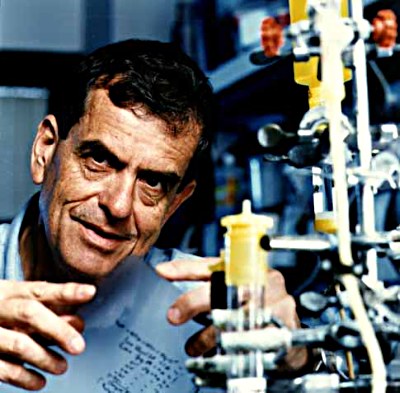
Aaron Ciechanover
All living things are made up of proteins. Scientists have spent decades trying to understand how they are made, how they work, what happens when they malfunction and how to fix them. But, there was one aspect of the study of proteins that interested few – the waste disposal process. How are protein molecules broken down once they have served their useful purpose? Until the 1980s, this question was considered of marginal importance by many scientists. Not Ciechanover, Hershko, and Rose, however. They recognised that the disposal of degraded, worn out or malformed proteins from the cell was key to the survival of the cell. After all, if worn out proteins were left to accumulate, as happens in some diseases, the cell itself would eventually fail.
The key to the trio’s discovery was to reveal how the cell knows which proteins require disposal. The internal machinery of the cell, they realised, acts as a highly efficient checking station building and breaking down proteins at an incredible rate. But, the break down of proteins is not indiscriminate there has to be a way for waste proteins to be labelled. Their research revealed the molecular label with which the cell tags waste proteins, this kiss of death molecule is recognised by the proteosome, the cellular equivalent of a garbage-disposal unit, and breaks apart only those proteins tagged with the molecule. So, vital is this process to cell life, that the molecule is found throughout life and is rightly named ubiquitin.
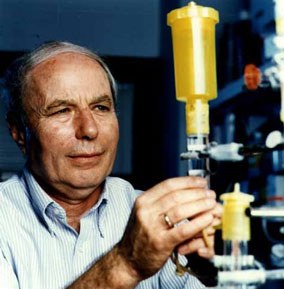
Avram Hershko
This is the third year in a row that the Chemistry Prize has been awarded for important work relating to molecular biology rather than straight chemistry, although the 2001 prize focused very much on fundamental chemical reactions. The award perhaps recognises how the boundary between chemistry and biology is becoming increasingly indistinct. Some observers, however, would suggest that chemistry as a distinct subject will cease to exist before too long as the demand and supply of chemistry education fails and is displaced by molecular science at the interfaces with other disciplines, not least biology and materials science.
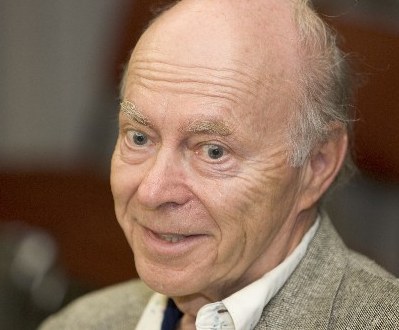
Irwin Rose
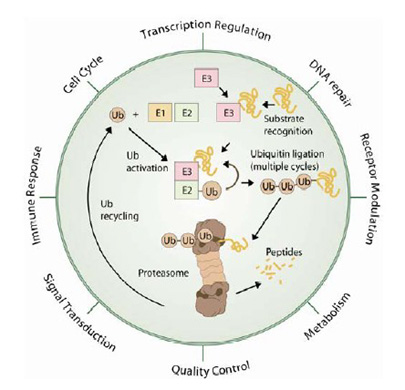
Ubiquitin-mediated protein breakdown is at the heart of many biological functions
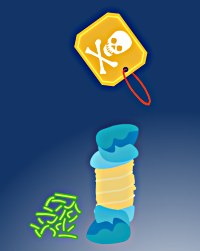
Proteins labelled with the kiss of death are minced by the proteosome
Further reading
Royal Swedish Academy of Sciences
http://www.kva.se/KVA_Root/index_eng.asp?br=ie&ver=4up
The Nobel Prize
http://nobelprize.org/
The Ruth and Bruce Rappaport Faculty of Medicine
http://md.technion.ac.il/
Aaron Ciechanover
http://md.technion.ac.il/lecturers/lecturer_desc.asp?lecturerID=32&departmentID=2&contentCatID=4
Avram Hershko
http://md.technion.ac.il/lecturers/lecturer_desc.asp?lecturerID=450&departmentID=38&contentCatID=4
Animation showing the process of protein tagging and disposal
http://nobelprize.org/chemistry/laureates/2004/animation.swf